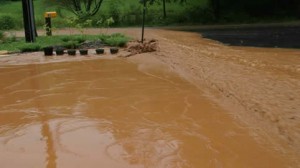I mentioned the fact a couple of weeks ago (Jan. 1 – “Time to rejoin the “battle outside”) that NC House Bill 74 the Regulatory Reform Act of 2013 was set to begin the process of reviewing – readopting and/or repealing all state rules and that the first rules under the dissection scope would be those related to surface water quality and wetland regulations.
Well the state’s beefed up Rules Review Commission (RRC) is set to begin. In keeping with North Carolina’s new political leadership’s ideology of openness the commission has scheduled a public meeting so the average working stiff can attend and listen or comment. The meeting is scheduled for 10:30 a.m. Thursday (Jan. 16) at the Office of Administrative Hearings on New Hope Church Road in Raleigh.
Now the Rules Review Commission is not a new entity. It has been around since 1986. It was created with the intent and purpose of determining if proposed new rules were authorized by law and if they were clear and necessary. But now thanks to the Regulatory Reform Act the new “beefed up” RRC is also the final arbiter, determining if a rule is needed or if it should be abolished.
I should point out here that by “rules,” I’m not talking about “no running in the halls,” or “keep right except to pass.” No, according to Kirk Ross in Coastal Review Online (Jan. 10) “…in the parlance of government the word [rules] describes exactly how something mandated by law is accomplished. Rules lay down the definitions, requirements and procedures both for government agencies and anyone who wants or needs to interact with them.”
So in today’s North Carolina any business, government agency, government official, environmental organization and/or private citizen that proposed or undertook any endeavor that would impact surface water and or wetlands would be bound by the rules that are currently in place. Of course if those rules were repealed or abolished?
It’s pretty easy to see that members of a rules commission like the RRC – ultimate arbiters with regards to the state’s drinking waters, stormwater runoff, river and/or stream classification and buffer requirements among other things – should be publicly vetted and selected based on their expertise, knowledge and abilities. North Carolina achieves this by having its RRC appointed by the legislature.
It’s probably a good thing that the RRC is going to work right away. According to Ross’s piece, “The N.C. Division of Water Resources on Wednesday presented the state Environmental Management Commission, or EMC, which devises environmental rules, with a list of 375 surface water and wetland rules that it says will need to go back through the re-adoption process.”
Ross also quotes Grady McCallie, policy director at the North Carolina Conservation Network as stating that, “The EMC has roughly 2,000 rules to consider. Hundreds more are under the purview of other DENR-related entities such as the Coastal Management and Mining and Energy commissions.”
Also, according to Ross, NC DENR officials estimate that the review of these rules will take until 2018. And what happens if any of these rules don’t make it through the review process – they automatically expire.
I suggest you check out Ross’s piece at http://www.nccoast.org/Article.aspx?k=92d3e742-5cac-4768-b010-83d367bfa4b2.
And also an earlier posting at SmithEnvironment blog http://www.smithenvironment.com/environmental-policy-in-n-c-looking-back-at-2013-and-forward-to-2014/.
During this RRC process there will be opportunities for public comment and Ross’s piece helps explain how this should play out. But remember, these rules – many in place for years – can be reversed or abolished simply by fiat of the General Assembly and the most binding public comment in that regard is your vote. Mid-terms are coming up and if you don’t like the direction things are going go to your polling place and make a public comment – just remember to bring your drivers license and be prepared to stand in line.

